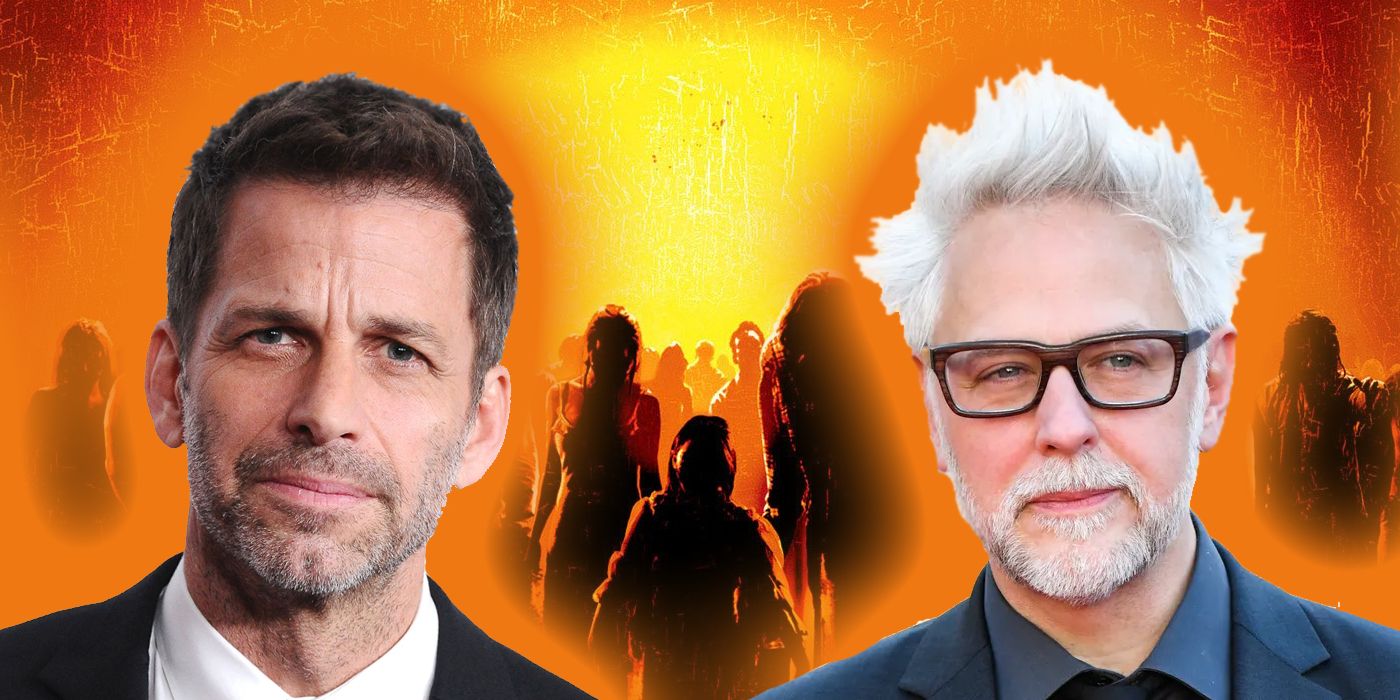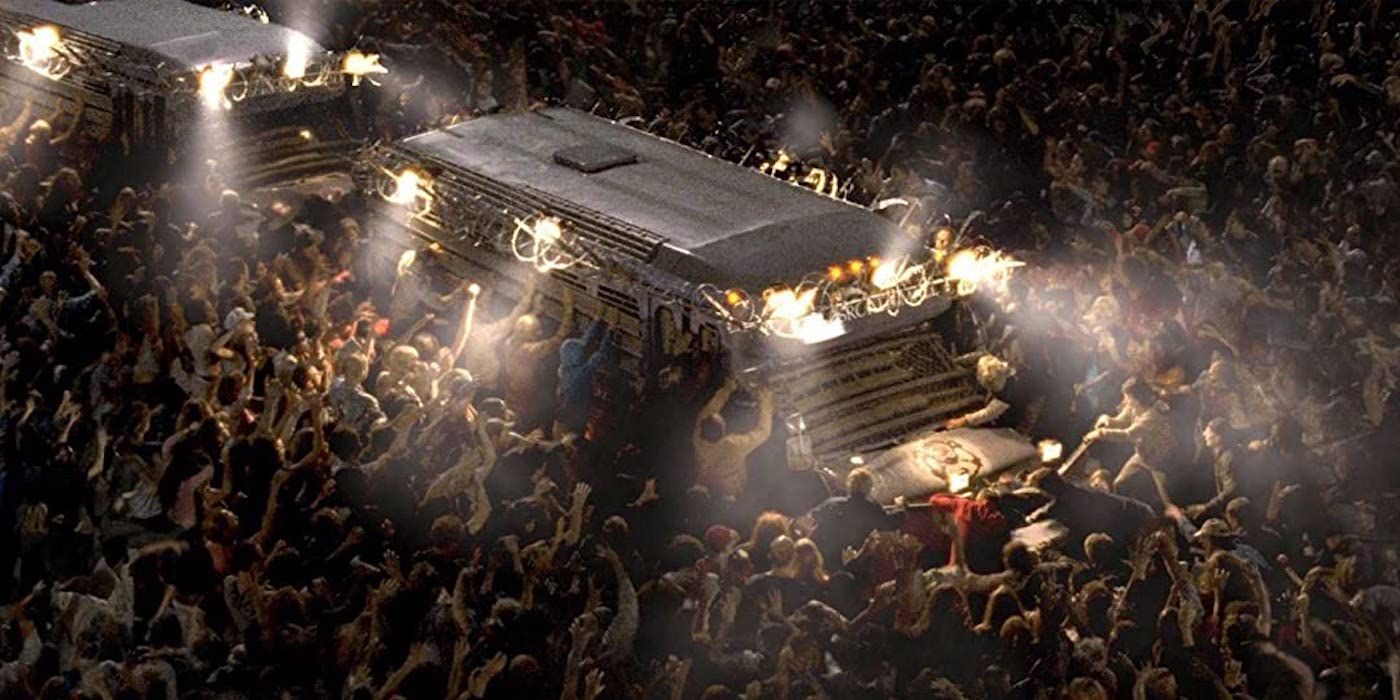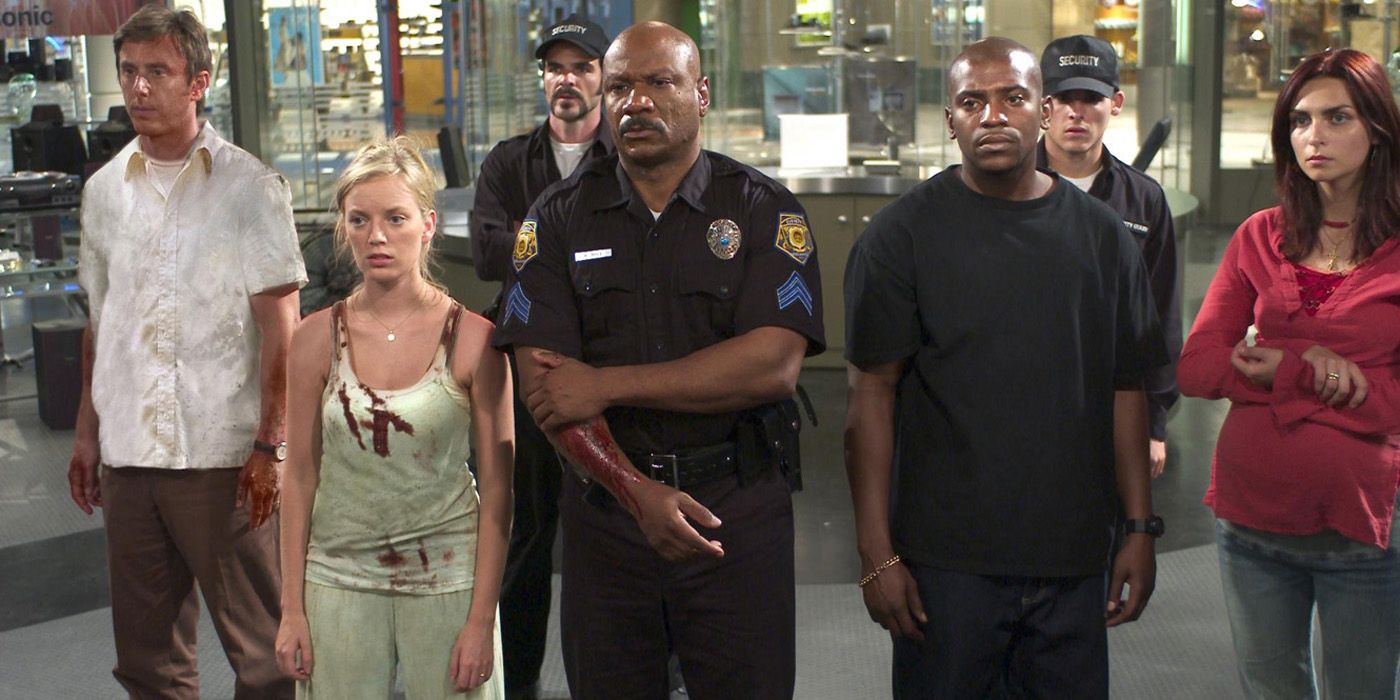The 2004 version of Dawn of the Dead reinterpreted George A. Romero's famous zombie film as a fast-paced action horror movie. Attached to this film were first-time director Zack Snyder and rookie screenwriter James Gunn. While not apparent at the time, both men would become some of the most prolific directors of comic book movies.
Dawn of the Dead comes as something of an outlier in both men's careers, given they are now famous for having directed blockbuster superhero movies. But even in the genesis of Gunn and Snyder's careers, the roots of their familiar filmmaking styles are clearly defined in the final product. It also laid the groundwork for how both of them would handle their approaches to the superhero genre.
Dawn of the Dead Puts Snyder & Gunn's Filmmaking Trademarks on Full Display
Despite not being a superhero movie, Zack Snyder's signature filmmaking style can be observed in Dawn of the Dead. The action sequences are visceral and high energy, with their flow comparable to Snyder's work in Man of Steel and Batman v Superman: Dawn of Justice. The cinematography lends itself to a muted feel with occasional pops of color, a signature across many of his films. Finally, the movie incorporates generous amounts of practical effects mixed with CGI, almost as if it were a test bed for the detailed effects pieces Snyder would develop for his superhero films. It is clear that even in his directorial debut, Snyder had a certain filmmaking style ironed out. But that's not to say only Snyder's personal touches made their way into the final movie.
While James Gunn only served as the screenwriter, it's easy to see Dawn of the Dead as a practice round for his later superhero films. A dry level of black comedy peppers the story throughout, with sequences such as a zombie sniping game feeling not out of place in something such as The Suicide Squad. The flawed survivors learn to bond as a family despite their bickering, a running theme in Gunn's superhero movies. Most importantly, the generous usage of licensed music serves as a prototype for how music would be used for Gunn's directing career.
Dawn of the Dead Showed Snyder and Gunn Could Make an Adaptation Their Own
On Dawn of the Dead, Zack Snyder and James Gunn showed they could make an adaptation their own personal work. The movie shares the general premise and mall setting with the classic Romero horror film but otherwise is quite different. The slow zombies are fast-paced monsters to lend the movie an action element, while the cast is larger and shares little resemblance to the original characters. Finally, the plot shares few beats with the original, with the climax, in particular, being an original piece set entirely outside the mall.
Something comparable can be seen in the two men's superhero films. Snyder blended multiple comic stories to create the plots of his DC movies, resulting in brand-new takes on the characters that felt like existing stories. Meanwhile, Gunn staffed his Marvel and DC films with obscure characters and breathed new life into them. The two showed they were capable of being pragmatic about adapting a previous work and capable of changing where necessary.
Dawn of the Dead was important not just for being a remake but as the launch pad for James Gunn and Zack Snyder's careers. It showed the two future superstar directors had a strong grasp on their fundamental styles at an early stage with flair. More importantly, they demonstrated strong skills at adapting prior works that would suit them well for creating superhero films based on long-running characters. Both Snyder and Gunn would later direct some of the most notable movies for both DC and Marvel. Gunn eventually became the co-head of DC Studios because of his work. Meanwhile, Snyder returned to his roots with Army of the Dead, proof that this horror remake created a lasting legacy that carried its creators even two decades later.



